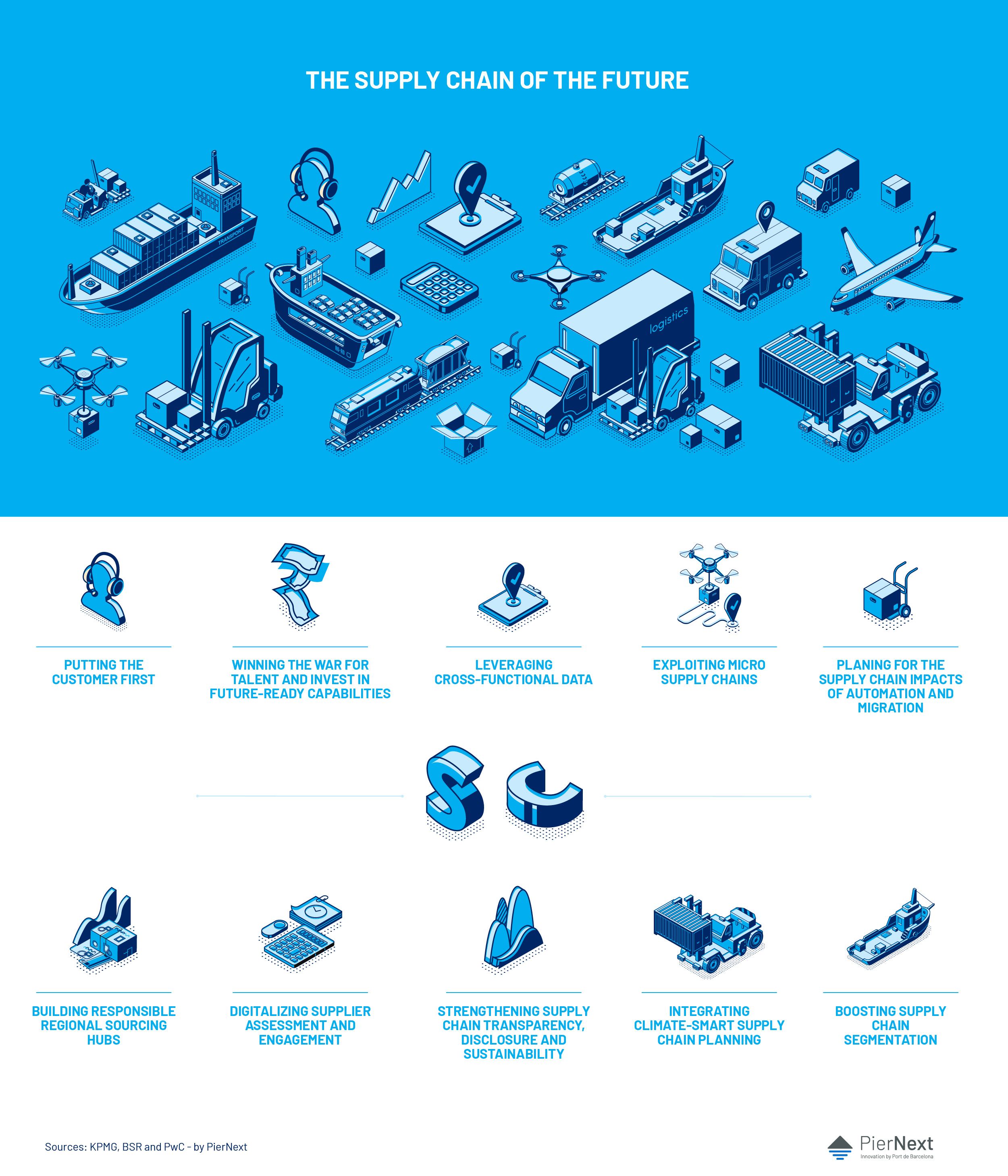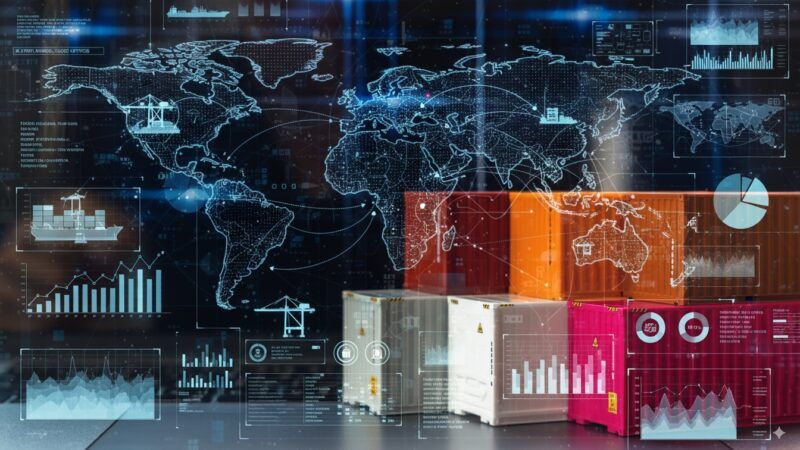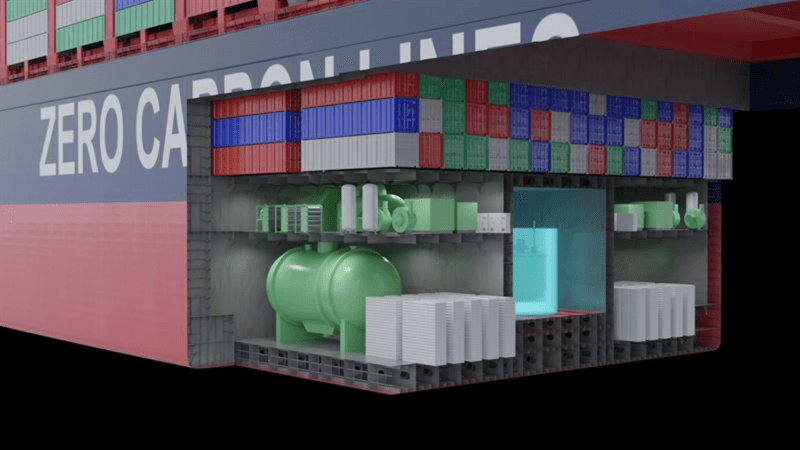Technological allies
The introduction of technologies such as Artificial Intelligence (AI) allows to interpret the data generated by interactions with customers to segment and predict behavioral patterns and anticipate the market. The challenge of managing a massive volume of data is an opportunity to be more innovative on the way we evaluate and interpret them.
Thus, with more data available than in any other period in history, another challenge faced by the different links in the chain will be to define and distinguish what information is useful and which is not, and how to collect and interpret it. Supply chain leaders will need to evaluate available tools and processes with several priorities in mind: they need to be in real-time and open-ended.
Along these lines, KPMG predicts a connected and self-optimized logistics, which at the click of a button, data will be processed in real time, connecting the different agents of the chain in a transparent way, thanks to integrated, end-to-end systems.
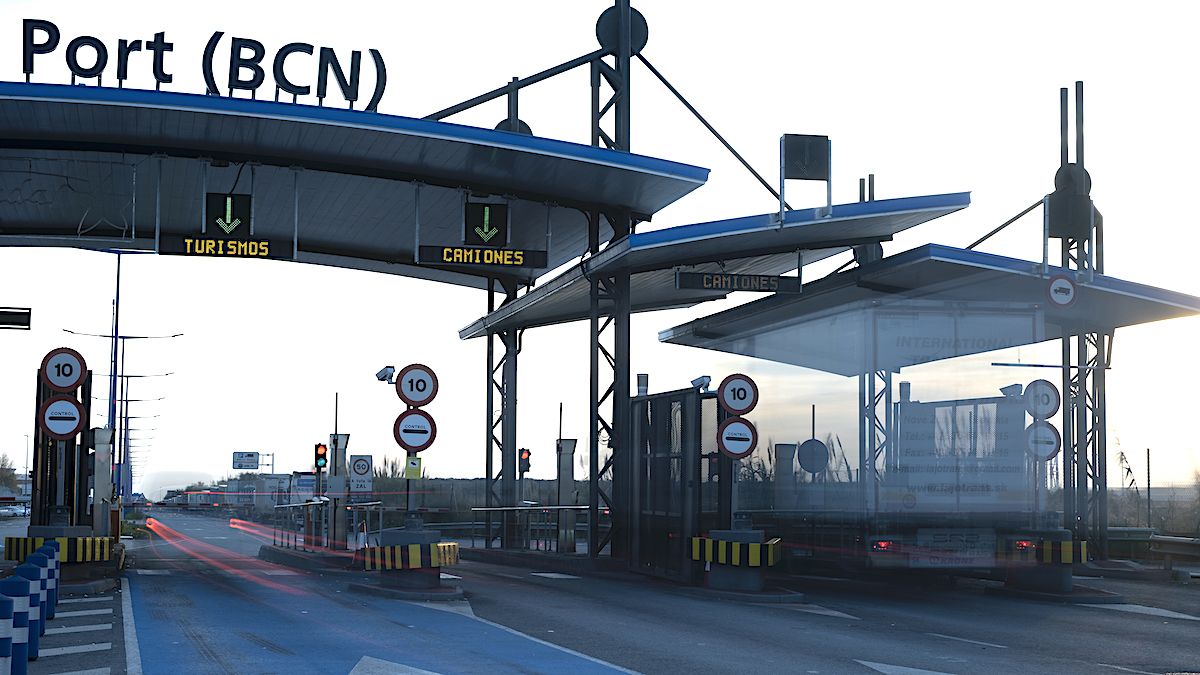
Transparency is another key and a remedy against uncertainty. Logistics can anticipate by preparing for possible future scenarios by improving visibility and communicating actions better. This will also allow companies to be ready when addressing regulatory requirements and scrutiny from political interests that may appear in the context of international trade.
PriceWaterhouseCoopers’ report “Connected and autonomous supply chain ecosystems 2025” also foresees that supply chains will be self-orchestrated, integrating external agents from start to finish. This principle also corresponds to the planning of the chain itself, as real-time synchronization allows processes to be continuously optimized. Digitalization will also report savings and benefits, specifically of 6.8% and 7.7%, according to a survey carried out by the firm.
Regarding automation, the report talks about intelligent logistics, capable of connecting the physical with the digital through automated warehouses and transport that will help maximize efficiency and reduce costs.
The ports, at the forefront
Many ports have already initiated this way forward, and their leadership can serve as an example for the rest of the logistics agents.
Rotterdam, Hamburg, Los Angeles, Antwerp or Barcelona are examples of ports that have understood that in these new times they need to focus their strategy on sustainability and the digitalization of their activity. They lead international initiatives to, on the one hand, promote the energy transition and decarbonisation of port activities and, on the other, guarantee the traceability of merchandise and the integration of operators through the sensorization of their enclosures and the development of collaborative applications that cover the entire logistics chain.
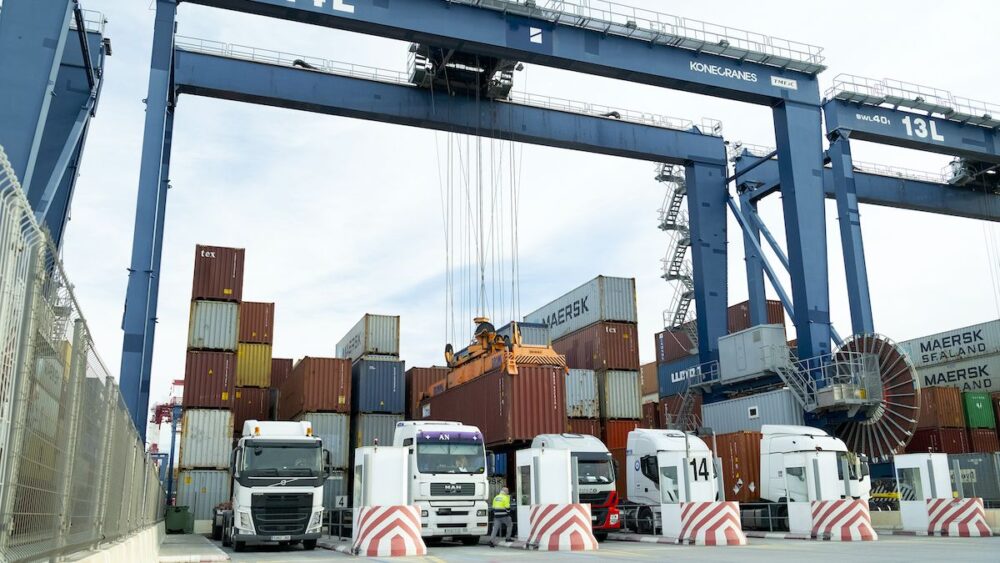 Many ports have already initiated this way forward, and their leadership can serve as an example for the rest of the logistics agents. (Port of Barcelona)
Many ports have already initiated this way forward, and their leadership can serve as an example for the rest of the logistics agents. (Port of Barcelona)
 Many ports have already initiated this way forward, and their leadership can serve as an example for the rest of the logistics agents. (Port of Barcelona)
Many ports have already initiated this way forward, and their leadership can serve as an example for the rest of the logistics agents. (Port of Barcelona)



